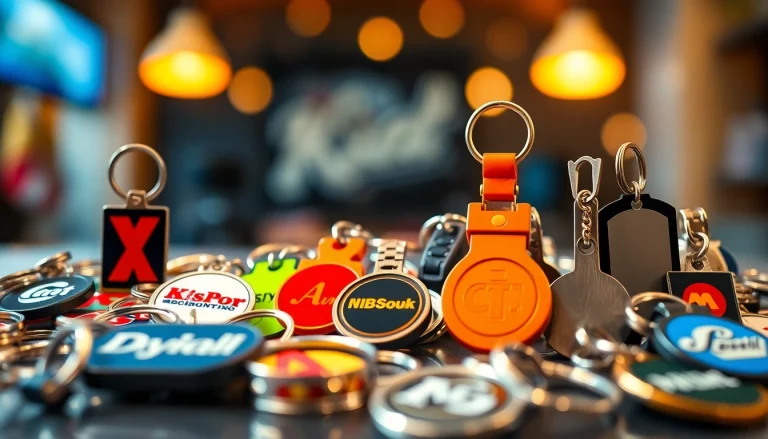
Understanding the Problem of Keys Locked in Car
Finding yourself locked out of your vehicle can be a frustrating experience. It often happens at the most inconvenient times, whether you’re rushing to work, headed to an important meeting, or simply trying to return home after a long day. Understanding why and how this situation occurs is crucial in order to react promptly and effectively.
Common Reasons for Lockouts
Various scenarios can lead to Keys Locked in Car incidents. Some of the most common reasons include:
- Forgetting the keys inside: It’s easy to get distracted and leave your keys on the passenger seat or in the ignition.
- Key Fob Issues: Modern cars often utilize key fobs, which may fail to operate due to dead batteries or malfunction.
- Lock Mechanism Failure: A faulty lock can lead to accidental lockouts, particularly in older vehicles.
- Unintentional Locking: In some cases, automatic locks engage without the driver’s intention, locking the keys inside.
Immediate Impacts of Being Locked Out
The immediate reactions to being locked out can include a sense of panic or anxiety, especially if you are on a tight schedule. Furthermore, this situation can lead to:
- Delayed Appointments: Missing important meetings, appointments, or social gatherings can have significant repercussions.
- Increased Stress: The pressure of being locked out can lead to increased stress and anxiety, impacting mental wellbeing.
- Potential Security Risks: Leaving your vehicle unattended can pose potential risks for theft, fraud, or vandalism.
Importance of Having a Plan
Preparation is key. Having a plan in place can significantly alleviate the stress of being locked out. Consider developing a personal protocol that includes:
- Maintaining a spare key at a trusted friend or family member’s house.
- Investing in a locksmith service or roadside assistance.
- Familiarizing yourself with your car’s unlocking mechanisms, if feasible.
DIY Techniques for Keys Locked in Car
In certain situations, you may wish to try a DIY approach to retrieve your keys. This section explores different techniques that can be safely implemented.
Using Basic Tools Available
Before attempting any DIY solutions, it’s essential to ensure you have the right tools on hand, such as:
- Slim Jim: A tool designed to unlock car doors by manipulating the locking mechanism.
- Wire Coat Hanger: A flexible metal rod that can be bent to reach inside the car and unlock the door.
- Suction Cups: These can sometimes be used to pull open the door slightly and manipulate the lock.
Safe and Effective Methods
While DIY methods can sometimes work, caution is crucial. Here are notable techniques that require careful execution:
- The Wedge and Rod Method: Inserting a wedge into the door frame can create a gap to insert a rod or wire and unlock the door.
- The Shoelace Method: If your vehicle has a simple locking mechanism, you can use a shoelace to unlock it by looping it around the lock.
When to Attempt a DIY Solution
Attempting DIY solutions should be a carefully considered choice. Before you proceed:
- Assess your surroundings and ensure it’s safe to attempt unlocking your vehicle.
- Understand your vehicle’s design; certain cars come with advanced locks that may not respond well to DIY methods.
- Don’t force anything that could damage the vehicle — it might end up costing more to fix than calling in professional help.
When to Call for Help
Sometimes, the best course of action is to call for assistance. Understanding when and how to do this can save you time and trouble.
Identifying Reliable Services
In the case of vehicle lockouts, your choice of service provider matters a great deal. Look for:
- Local Locksmiths: Search for locksmiths specializing in automotive locks who can help you quickly and reliably.
- Roadside Assistance Programs: Many car insurance policies offer roadside assistance that can include lockout services.
- Emergency Services: In some scenarios, local law enforcement may assist, especially if someone is in danger.
Emergency Contacts to Consider
Keep a list of emergency contacts readily available on your phone or a card in your wallet. This should include:
- Your roadside assistance service provider.
- Local locksmith services available in your area.
- A trusted friend or family member who might have a spare key.
Cost Considerations for Unlocking Services
Understanding the potential costs involved in unlocking your vehicle is important. Here are factors that can influence pricing:
- The time of day: After-hours services may carry additional fees.
- Your location: Remote areas may incur different rates compared to urban settings.
- The complexity of the lock: More advanced locks may require specialized tools or techniques.
Preventative Measures to Avoid Lockouts
Taking steps to prevent being locked out can save you time, stress, and money in the long run. Consider the following preventative measures:
Creating Spare Key Solutions
One of the most effective ways to prepare for potential lockouts is arranging spare keys. Options include:
- Key Hiding Options: Hide a spare key in a magnetic box under your vehicle, or use a trusted neighbor’s home for safekeeping.
- Key Duplication: Get multiple copies made of your car’s key and distribute them to trusted individuals.
- Smart Key Fob Backup: Consider acquiring a second key fob as a backup if your vehicle allows for it.
Utilizing Technology for Security
Technology can enhance your vehicle’s security and accessibility:
- Keyless Entry Systems: Installing these systems allows for easier access while also providing advanced lock technology.
- Mobile Applications: Many modern vehicles offer apps that provide remote access and locking capabilities.
- GPS Tracking: Some locksmiths provide GPS security systems that will help track your keys stably.
Tips for Staying Organized
Organization can play a significant role in preventing lockouts:
- Setting reminders on your phone to check for your keys before leaving your vehicle.
- Establishing a designated spot in your home and vehicle where you keep your keys.
- Regularly educating family members on where your spare keys are kept and encouraging them to be mindful of key usage.
Real-Life Experiences and Advice
Learning from others’ experiences can offer valuable insights into managing and preventing lockouts. Real-life stories often provide actionable advice.
Stories from Individuals Who’ve Faced Lockouts
Real-life encounters provide intriguing lessons in preparedness:
- Several individuals share their experiences of being temporarily locked out, emphasizing the common mistake of leaving keys inside the car.
- Some users describe how they avoided major disruptions by planning ahead and using available resources effectively.
Lessons on Preparedness from Real Scenarios
An important takeaway from these stories is the emphasis on preparedness. Real-world examples highlight the value of:
- Investing in spare keys.
- Utilizing technology to strengthen vehicle access and security.
- Educating friends and family on lockout circumstances and proper reactions.
Expert Recommendations on Avoiding Future Incidents
Experts recommend the following to minimize the risks associated with lockouts:
- Consistently check for your keys before leaving your vehicle.
- Annual reviews of your spare key arrangements with a trusted family member.
- Being proactive in vehicle maintenance checks can help identify potential lock issues before they become a problem.






